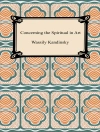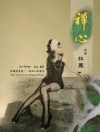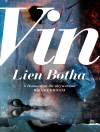Michael Sullivan’s
Chinese Art in the Twentieth Century offers a profound and nuanced exploration of modern Chinese art’s evolution amidst the complex interplay of Eastern traditions and Western influences. Addressing an academic audience, Sullivan contextualizes Chinese art’s transition as one of the most significant artistic shifts in modern history, where traditional Chinese aesthetics encounter Western art forms, reshaping China’s cultural landscape. Unlike Western art, which evolved largely from within, Chinese art’s modern transformation reflects a dual identity, balancing indigenous techniques with foreign influences, and tackling themes of modernization and political ideology. This transformation sheds light on the broader global discourse on cultural authenticity, adaptation, and the hybridization of artistic practices.
Sullivan’s examination reaches beyond the scope of Chinese art, linking it to a global framework where East meets West, and where abstract principles like those in Chinese calligraphy resonate with Western abstract expressionists like Pollock and Tobey. By tracing these convergences, Sullivan highlights art’s role as a vessel of cultural exchange and ideological negotiation. The book captures an ‘age of transition, ‘ offering scholars a comparative framework for analyzing how global forces shape national artistic identity. With an interdisciplinary approach,
Chinese Art in the Twentieth Century positions itself as essential reading for those interested in understanding the broader dynamics of cultural transformation and artistic innovation in a rapidly globalizing world.
This title is part of UC Press’s Voices Revived program, which commemorates University of California Press’s mission to seek out and cultivate the brightest minds and give them voice, reach, and impact. Drawing on a backlist dating to 1893, Voices Revived makes high-quality, peer-reviewed scholarship accessible once again using print-on-demand technology. This title was originally published in 1959.
A propos de l’auteur
Enter the Author Bio(s) here.












